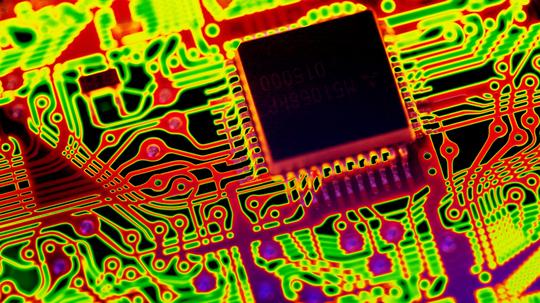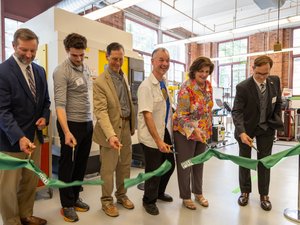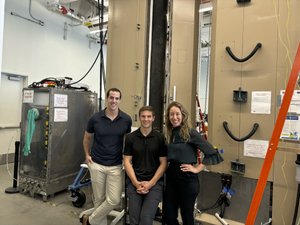
Imagine this: You want a sports car. But instead, you buy a sturdy, reliable sedan designed to serve you well for a while. It becomes an optimal choice in terms of utility, affordability and technology. Ultimately, because it's more economically viable to to buy a sedan rather than a sports car.
But what if a sedan stops being an ideal compromise? In other words, what if a sports car became more like a sedan? Would your choices change?
They should, argues a team of researchers at MIT’s Computer Science and Artificial Intelligence Laboratory (CSAIL). In a new paper, the researchers draw the analogy to computer science.
"If you think about the way we have been designing our computers, it's a lot like cars," said Neil Thompson, one of lead authors of the paper. "It's about the compromises made between speed and efficiency."
The paper is co-authored by Butler Lampson (founder of Xerox PARC, who is often credited as a founding father of modern personal computing) and Charles Leiserson (co-author of widely published "Introduction to Algorithms"), Neil Thompson, Joel Emer, Bradley Kuszmaul, Daniel Sanchez and Tao Schardl.
The researchers argue that as miniaturization of semiconductor transistors, the technology trend that has driven the growth in computer performance for more than 50 years, approaches its limits, computing power will have to come from software, algorithms and specialized hardware.

The paper's premise is to look at what will drive computing beyond Moore's Law. For those unfamiliar, Moore's Law, or Moore's perception, is based on Intel founder Gordon Moore's observation that the number of transistors on a microchip doubles every two years, though the cost of computers is halved. Simply put, we can expect increased speed and capability from our computers, for less money.
The paper suggests that semiconductor miniaturization is running out of steam as a viable way to grow computer performance, and the opportunities lie at the higher levels of the computing-technology stack, mainly in three areas: The first hardware architecture, or programmable digital circuits that perform calculations. The second is software, or code that instructs the digital circuits what to compute. And the third is algorithms, which are efficient problem-solving routines that organize a computation.
"Moore's Law has been the advanced technical trend for decades," Thompson said. "We took computers and shrunk them. We took advantage of the small size and use it for speed. But the nature of computer processing is changing."
Thompson added that, for long time, advances in computing have been based on generic hardware and specialized software. "Now, we're saying let's build specific hardware so we can achieve one thing, even if we have to compromise other factors like speed," he said.
Why? Because it might be economical to do so.
Bringing the analogy back to cars, the researchers suggest your sedan isn't in fact getting efficient with each passing year. The market now has sports cars that can do more and are cheaper.
Thompson gives the example of DreamWorks Animation. "Every time they wanted to make a Shrek movie, they wanted better effects," he said. "So, they made a deliberate choice to rearchitect their software, rather than hardware, to software to get more speed and handle more complicated computations."
Google did this with tensor processing units (TPU), an accelerator application-specific integrated circuit the company developed specifically for neural network machine learning.
"[Google] designed things they cared about because they cared about them," Thompson said.
However, he conceded that this approach may not lead to quick adoption. This will be applicable to specific areas like supercomputing and quantum computing at first.








